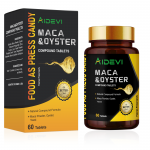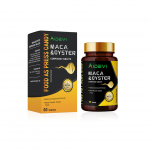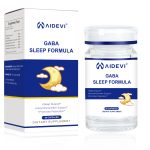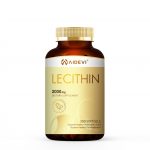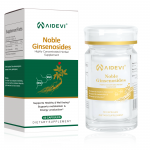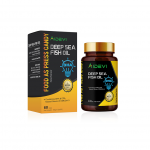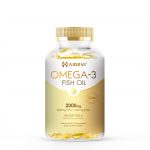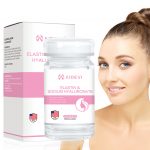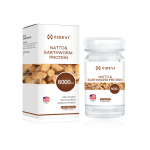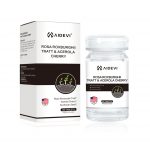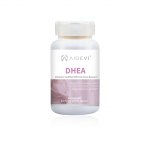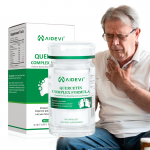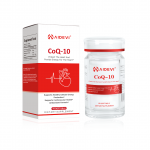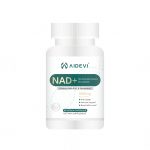Aged 65 and above, it’s essential to understand: Supplementing potassium is even more crucial than supplementing calcium.
For our elderly friends, we often stress the importance of paying extra attention to nutritional supplements. This is because as the body ages, it needs more support from various nutrients. Additionally, as we grow older, our bodies become less efficient at absorbing various essential nutrients. When we advise seniors on nutritional supplementation, we frequently emphasize the importance of various vitamins and the need for calcium. However, we often overlook the significance of certain other minerals and mineral supplementation. Today, we'd like to introduce a mineral nutrient that is often underestimated in nutritional support but is a vital component for safeguarding the cardiovascular health of seniors, and that mineral is "potassium."
The Vital Role of Potassium in the Body
While the importance of sodium (salt) for the human body is well-known, the significance of potassium (potassium salt) is equally critical. Potassium is the most abundant positively charged ion within our cells and plays a pivotal role in maintaining the normal functioning of the basic building blocks of life—our cells. The concentration of potassium inside our cells is about 30 times higher than outside our cells, and this difference creates an electrochemical gradient across cell membranes. This gradient is maintained by the sodium-potassium (Na+/K+) ATPase transport protein and is crucial not only for maintaining cell integrity but also for supporting nerve transmission, muscle contraction, and proper kidney function.
A deficiency of potassium in the body can have far-reaching effects on our health. Inadequate potassium intake can lead to elevated blood pressure, increased sensitivity to salt, and further water and sodium retention, resulting in a greater increase in blood pressure. In addition, potassium deficiency can heighten the risk of kidney stones, impact bone health, and interfere with the excretion of urinary calcium, among other effects.
Mild hypokalemia (low blood potassium) can result in symptoms like fatigue, weakness, and constipation. On the other hand, severe hypokalemia can lead to excessive urination, muscle paralysis, irregular heart rhythms, and even disrupt the normal functioning of the heart muscle, posing a life-threatening risk.
Supplementing Potassium in Elderly Individuals Enhances Blood Pressure Control and Reduces Stroke Risk
Many elderly individuals already have high blood pressure, and in China, a high proportion of them have salt-sensitive hypertension. For elderly individuals with high blood pressure, especially those with salt-sensitive hypertension who have a penchant for salty foods, it is beneficial to pay attention to potassium supplementation alongside salt restriction. In 2017, a meta-analysis of 25 randomized controlled trials involving 1,163 hypertensive patients found that adequate potassium supplementation for 4 to 15 weeks led to an average reduction of 4.48 mmHg in systolic blood pressure and 2.96 mmHg in diastolic blood pressure. Furthermore, studies suggest that combining potassium supplementation with antihypertensive medication can more effectively enhance blood pressure control. Therefore, for elderly individuals with hypertension, especially those with salt-sensitive hypertension, it is essential to not only control salt intake but also ensure sufficient potassium intake.
In terms of reducing cardiovascular risk, several studies have indicated that moderate potassium supplementation has a role in reducing the risk of stroke. A meta-analysis of 11 prospective cohort studies involving 247,510 adults found that daily potassium intake of 1,640 mg reduced stroke risk by 21%. Another meta-analysis of nine cohort studies reported a significant 24% reduction in stroke risk with higher potassium intake.

Key Points for Elderly Individuals When Supplementing Potassium
For which elderly individuals is potassium supplementation most crucial? We particularly emphasize two scenarios. The first is for individuals with inflammatory bowel disease, especially those with chronic inflammation of the colon. The colon can secrete and absorb potassium ions into the body, and patients with inflammatory bowel disease often experience chronic diarrhea, which can affect the absorption of potassium ions and potentially lead to potassium deficiency. The second scenario is for individuals taking specific medications, such as elderly patients with hypertension who are taking thiazide diuretics. Additionally, some elderly individuals who take high doses of laxatives and frequently use enemas may experience increased potassium excretion, resulting in potassium deficiency.
For individuals in these two scenarios, it is advisable to regularly monitor blood potassium levels. If a potassium deficiency is detected, it is essential to seek medical advice from a healthcare professional who can prescribe a treatment plan for potassium supplementation to prevent severe hypokalemia and mitigate potential health risks.
How Should the Elderly Supplement Potassium?
According to dietary recommendations from the National Academy of Sciences, Engineering, and Medicine (NASEM), adults over the age of 50 with normal kidney function should aim for a daily potassium intake of approximately 3,400 mg for men and 2,600 mg for women. These recommendations reflect the adequate intake required to meet the body's daily needs.
For elderly individuals who fall into the two scenarios mentioned above, it is advisable to primarily obtain potassium through dietary sources. Potassium is naturally present in various foods, including nuts, legumes, vegetables (such as potatoes, pumpkins, green beans, spinach, lentils, broccoli, and tomatoes), fruits (such as bananas, oranges, apples, and cantaloupes), meat (beef and chicken), dairy products (milk and yogurt), and grains. Through balanced dietary choices and the inclusion of potassium-rich vegetables and fruits, milk, legumes, and nuts, seniors can generally meet their daily potassium requirements.
In the case of individuals with confirmed potassium deficiency or hypokalemia, in addition to dietary supplementation, potassium supplements can also be taken, but the dosage should be controlled to maintain a balance.





